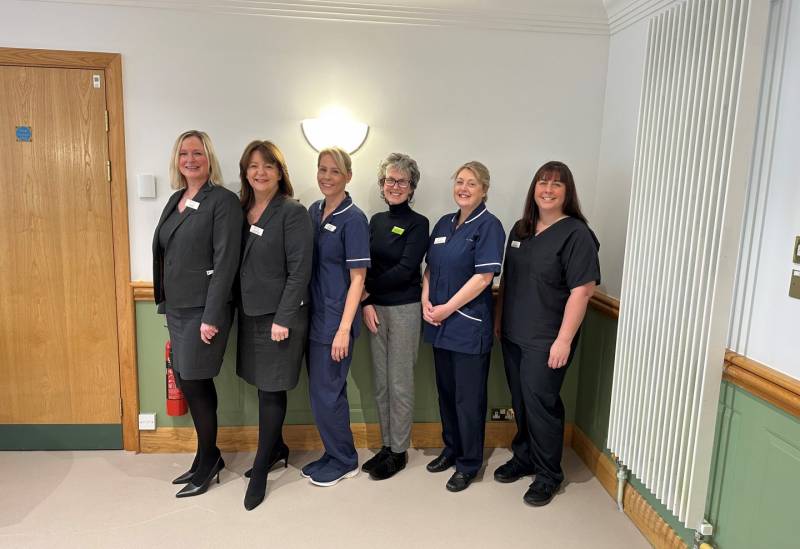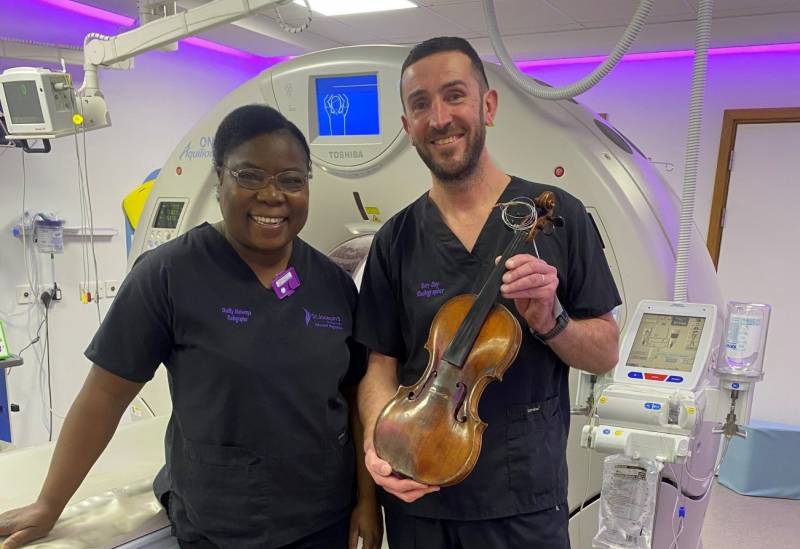Menopause
The menopause, often referred to as ‘The Change’, is an inevitable part of a woman’s life.
It refers to the time when a woman reaches the end of her reproductive capacity. This commonly occurs between the ages of 45 and 55, the average age being 51. At this time in life, women are often struggling to juggle a demanding job, child care and elderly parents.
Every woman’s experience of the menopause is different. Most women (8 out of 10) experience some symptoms lasting about 4 years after the last period. 10% of women experience symptoms for 12 years.
Symptoms include:
- hot flushes
- low mood or anxiety
- lack of interest in sex
- aches and pains
- vaginal dryness
- poor sleep
- stress incontinence
Menopause can also bring an increase in the risk of long-term health problems. These include:
- Breast Cancer
- Osteoporosis
- Cardiovascular Disease
- Urinary incontinence
NICE guidance says that the benefits of HRT outweigh the risks for women in their 50's and that there is no aribitrary upper age or time limit for stopping it. Treatment often needs to be individualised according to a woman's particular needs and any medical problems.
At St Joseph’s Hospital, we appreciate that every woman is different and we understand what a challenging time the menopause can be. We offer a bespoke service to guide you through menopause.
Coordinated by our experienced Consultant, our multi-disciplinary team delivers your care within a quiet, reassuring and relaxing environment within the heart of our hospital.
We promise to provide:
- time - to listen, understand and support you
- continuity - to develop strong relationships between patient and doctor
- relief - from short-term menopausal symptoms
- advice - about ways to improve health and wellbeing
- information - about staying well. Up-to-date, evidence-based information in a format to suit you
Our services include:
HRT
All forms of HRT including patches, gels and implants can be given. Bioidentical HRT options can be discussed.
Oestrogen in hormone replacement therapy (HRT) can be given by gels, patches, spray, tablets or implants. Testosterone can be given by gel, cream or implant. Some women do not absorb hormones any other way except by implant. Oestrogen and testosterone implants are not contraceptive.
Any woman who has a uterus and takes HRT should use progesterone. Progesterone implants do not exist for HRT, but the Mirena coil (IUS) can be used instead. Contraceptive implants eg Nexplanon are not suitable for HRT.
HRT implants are about the size of a large grain of rice. They are inserted in the clinic into subcutaneous fat of the abdomen by a simple technique under local anaesthetic using a small 5 mm incision and no suture. It is mildly uncomfortable, but patients do not generally find it painful.
It is usual for menopause symptoms to improve within two weeks and to begin to return at approximately five months although in some patients the symptoms may return as early as three months or as late as eighteen months after the last implantation. The implant is absorbed completely, and an old one does not need to be removed (unlike contraceptive implants). Many patients have their implant renewed every six months or so.
Occasionally women report symptoms coming back even though they have plenty of oestrogen in their system. This is called tachyphylaxis and is why a blood oestrogen level should be measured every year or so to ensure it is not getting too high.
It is possible to get a mild infection at the insertion site, and occasionally an implant can work its way back out. Generally, however, implants are very safe and side effects are unlikely.
Oestrogen and testosterone implants have been used safely for several decades in the UK. In the last few years, they have had to be imported from the USA as the UK and European manufacturers stopped making them for commercial reasons. This has meant many menopause services no longer supply them.
Our consultant will listen to you and build in treatment around your priorities using her considerable expertise and knowledge.
Musculoskeletal physiotherapy assessment (30 minutes)
Joint aches commonly occur, often affecting neck, wrists and shoulders, but since other causes such as osteoarthritis are very common at this age, they may not be recognised as being associated with the menopause. As well as the possible effect of lack of estrogen affecting the ligaments around joints, research has also shown that this hormonal lack is involved in the development of osteoarthritis.
Our physiotherapists will address all the ‘aches and pains’ you’ve been experiencing, offer a full musculoskeletal physiotherapy assessment along with advice and strategies to manage your symptoms.
Gym or pool based exercise programme
Exercise is an integral part of the strategy. The benefits are many, most important being maintenance of muscle mass and thereby the bone mass and strength. An exercise program for postmenopausal women will be tailored to suit you, including endurance exercise (aerobic), strength exercise and balance exercises.
Pelvic Health physiotherapy assessment (60 minutes)
Pelvic Health physiotherapy is a specialist area that focuses on the assessment, treatment and management of bladder and bowel weakness or over activity.
- full bladder and bowel dysfunction screen
- assessment for prolapse symptoms
- assessment of sexual function, vaginal dryness and atrophy
- pelvic floor muscle range of functional movement, strength, endurance and activation synergy
Quantitative Computed Tomography (QCT)
QCT is a fast, non-invasive exam that is safe and effective for the evaluation of Bone Mineral Density and, consequently, diagnosis of osteoporosis.
It produces measurements that are the same as DXA, the test offered by the NHS, however QCT is likely to detect low bone mass in the spine earlier as QCT measures the interior bone which is affected earlier and to a greater degree.
Contraceptive services
The pregnancy rate in women at 45 years is 10-20 per 100 women and at 50 years is 5 pregnancies per 100 women.
We are able to clarify your fertility status and subsequently discuss and arrange contraceptive options to suit. Our consultant's have expertise in coil insertion, including the Mirena coil which is a useful contraceptive and also a treatment for heavy periods.
Our guide prices are from:
| Initial medical consultation |
£200 |
| Follow-up medical consultation |
£100 |
| Musculoskeletal physiotherapy assessment |
£50 |
| Pelvic Health physiotherapy assessment |
£70 |
| Insertion of HRT inplant |
£360 |
| QCT (Bone Density Scan) |
£375 |
| Insertion of Mirena IUS |
£275 |














































